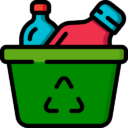Regulations, health, safety, environment
safe, controlled technology
Regulatory manufacturing constraints
In accordance with the regulatory texts cited, the solution is CE marked and delivered with a certificate of CE conformity, verified with the “anomaly detection grid” of INRS ED 4450.
Noise level < at 80 dB in operation
TheCO2 system and its storage are not classified as ICPE (French regulation : Installation Classified for the Protection of the Environmment).
Our CO2 machines comply with the following 5 directives:
- Directive 2014/68/EU of May 15, 2014 on the approximation of the laws of the Member States concerning pressure equipment (PED: Pressure Equipment Directive).
- Directive 2006/42/EC of May 17, 2006 on machinery, amending Directive 95/16/EC.
- Directive 2009/104/EC of September 16, 2009 concerning the minimum safety and health requirements for the use of work equipment by workers at work.
- Directive 2014/35/EU of February 26, 2014 on the harmonization of the laws of Member States relating to the making available on the market of electrical equipment designed for use within certain voltage limits.
- Directive 2014/30/EU of February 26, 2014 on the harmonization of the laws of the Member States relating to electromagnetic compatibility.
The best alternative to organic solvents
A waterless process to clean up your industry
Machine operation regulations
As for the operation of the machine, it is governed in France by Ministerial Order TREP 1723392A of 20/11/2017 on the in-service monitoring of pressure equipment and simple pressure vessels. Refer to local regulations in other countries.
Periodic inspection
Periodic inspection of pressure vessels is the responsibility of the operator. It shall be carried out by a notified body duly instructed by the operator.
Dense Fluid Degreasing will assist the operator in organizing and preparing the periodic inspection.
Every 24 months for all pressure equipment: category “ACAFR” or “Autoclave à Couvercle Amovable à Fermeture Rapide” meeting the criterion “greater than or equal to 10,000 Bar x liter”.
Every 48 months for all non-ACAFR pressure equipment not meeting the “greater than or equal to 10,000 bar x liter” criterion, based on commissioning as an operator.
It should be noted that this periodic inspection involves a production interruption.
Periodic requalification
In France, a periodic requalification of the volumes under pressure is carried out every 10 years after the equipment is “put into service”. Refer to local regulations in other countries. It is the responsibility of the operator and must be carried out by a notified body duly instructed by the operator.
DFD coaching includes:
- Equipment preparation
- Water filling
- Pressure test (hydraulic test), in the presence of the notified body appointed by the operator
- Draining, drying
- Replacing safety valves
- Checking safety systems
- Reassembly
Intervention dates defined by mutual agreement so as not to disrupt production, as this implies a production interruption, depending on the duration of the necessary interruption.
Emission limit values
The CO2 used is not produced by the machine.
It is therefore not subject to any discharge standards.
There are no specific emission limits for supercriticalCO2 as such, as it is a natural gas present in the atmosphere. However, when supercriticalCO2 is used as a solvent in industry, it is important to ensure thatCO2 emissions are controlled to minimize environmental impact.
It’s important to ensure that theCO2 used is recovered and reused to avoid leakage and unnecessary emissions.
Threshold limit value − time-weighted average (TLV-TWA)
Dense Fluid Degreasing complies with the Threshold limit value − time-weighted average (TLV-TWA) for CO2 of 5000 ppm under normal working conditions of 8 hours per day.
The system is supplied with the necessary CO2 sensors to detect and warn of any possible risk of CO2 leak.
The body of the machine integrates its ventilation system.
Dense Fluid Degreasing assures you of good manufacturing practices for its equipment
Quality materials: At Dense Fluid Degreasing, it’s important to use quality materials in the manufacture of our supercriticalCO2 equipment. The materials used are resistant to corrosion, pressure and high temperatures, to guarantee the durability of our machines.
Manufacturing standards: we comply with current manufacturing standards to guarantee the safety of our equipment in terms of pressure, temperature and safety.
Quality tests: We carry out quality tests before putting the equipment into service. These tests can include pressure, temperature and safety tests to ensure that the equipment is working properly.
Supercritical CO2 is a gas under pressure
Complies with :
REACH regulations
Requirements : DREAL, CARSAT occupational medicine, labor inspectorate, CHSCT, etc.
Chemically inert and stable:
Compatible with all metals + most polymers.
No bath regeneration
Recyclable
Between 80 and 90% of the CO2 used during the treatment cycle is recycled.
Dense Fluid Degerasing machinesare not classified as ICPE (French regulation : Installation Classified for the Protection of the Environmment) or ATEX (EXplosive ATmosphere).
Similarly, external storage of CO2 in cylinders or cryogenic tanks is not classified as ICPE or ATEX.
What CO2 is not
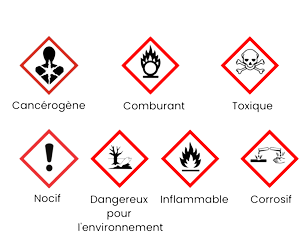
Carcinogenic
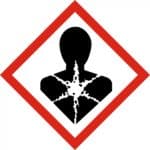
Oxydizer
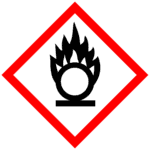
Toxic
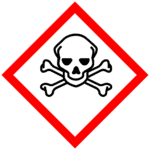
Flammable
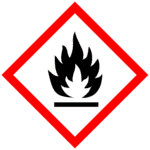
Harmful

Dangerous for the environment

Corrosive
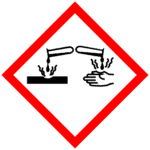
Frequently asked questions
Are there any regulations governing the use of CO2?
TheCO2 used in Dense Fluid Degreasing’s supercriticalCO2 cleaning and extraction machines is not produced by the machines themselves. In this sense, the machines themselves are not subject to regulations concerning pollutant discharges and emissions.
**CO2 has the advantage of being neither explosive nor flammable, unlike petrochemical solvents such as perchloroethylene or modified alcohol solvents. The use of co2 does not classify machines as ATEX (ATmosphère EXplosive).
SupercriticalCO2 cleaning machines are subject to two regulations:
- The PED (Pressure Equipment Directive) applies. In particular, it governs the maintenance, service life and use of various pressure equipment. Periodic checks are necessary to comply with regulations. These actions are generally included in the maintenance plan proposed by Dense Fluid Degreasing to minimize the impact of these regulatory obligations. The directive also requires all persons to undergo training in the use of pressure vessels.



